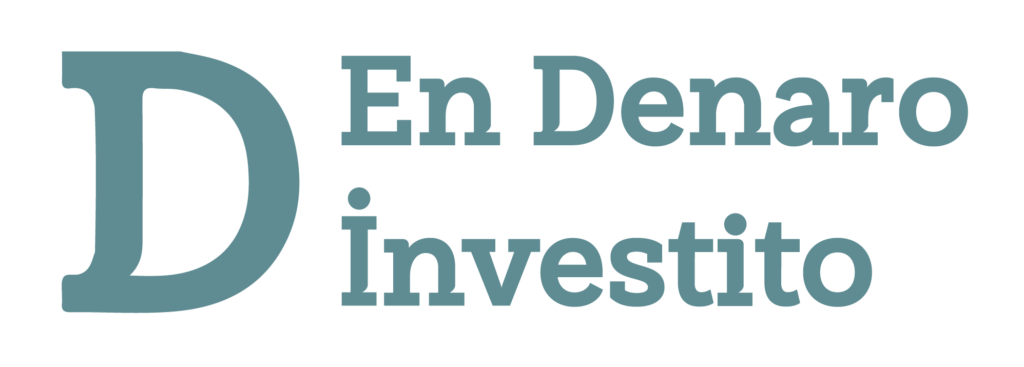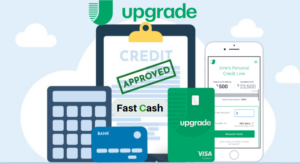We’ll look into various loans for your personal, business, and educational needs. Are you seeking a personal loan to reduce debt, a mortgage for a new home, or a student loan for college? We’ve got the information you need.
Key Takeaways:
- There are various types of loans available to cater to different needs, including personal loans, business loans, mortgage loans, student loans, car loans, home equity loans, small business loans, and installment loans.
- Personal loans are versatile and can be used for various purposes, such as debt consolidation or home improvements.
- Business loans are essential for entrepreneurs and small business owners to access capital for growth and success.
- Mortgage loans are necessary for purchasing a home, and understanding the different types is crucial in making the right decision.
- Student loans help finance higher education and come in both federal and private options.
Let’s explore each loan type. We’ll understand their features and benefits. This will help you choose the right loan for your situation.
Understanding Personal Loans
Personal loans are flexible and can be used for many things. You might need one for consolidating debt, making home upgrades, or handling unexpected bills. They help you cover various expenses, from paying down high-interest debts to fixing up your place or dealing with medical emergencies.
How Personal Loans Work
Personal loans don’t usually ask for collateral. That means they’re unsecured. Your credit score, income, and other details are reviewed by lenders to decide if you qualify. After getting approved, you receive the money in one go. You then pay it back in regular monthly payments over a set time.
The Benefits of Personal Loans
Flexibility is a major advantage of personal loans. They’re not limited to specific purchases like houses or cars. With steady interest rates and set payment amounts, they make budgeting easier. It’s simpler to manage repayment this way.
They often have lower interest rates than credit cards. This makes them good for paying off high-interest debts. You can combine several debts into one. This might save you money on interest and simplify your finances.
Considerations When Applying for a Personal Loan
Think about a few things before applying for a personal loan:
- Interest Rates: Shop around to find the best rate.
- Fees: Watch out for any extra costs like origination fees or penalties for paying early.
- Repayment Term: Pick a repayment period that fits your financial situation and goals.
- Credit Requirements: Know the credit score and income needed by lenders.
Exploring options and considering these factors will help you pick a personal loan that meets your needs. This way, you can work towards your financial objectives effectively.
Exploring Business Loans
For entrepreneurs and small business owners, getting capital is key for growth. Business loans help with funding to grow, invest in equipment, hire staff, or start marketing efforts.
We’ll look at different business loans available. This includes traditional bank loans, SBA loans, and alternative options. Knowing these can help pick the right one for your business.
Traditional Bank Loans
Traditional bank loans are a common choice. Banks offer these loans after checking your credit, financial health, and business plan. They have good interest rates and long repayment periods. This makes them great for stable businesses.
SBA Loans
SBA loans have U.S. Small Business Administration backing. They help small businesses that might not get bank loans. The SBA guarantees part of the loan, reducing lender risk. This increases approval chances. With lower down payments and extended repay times, they’re great for startups or businesses with tougher bank requirements.
Alternative Financing Options
Besides bank and SBA loans, there are other ways to fund your business. These include:
- Online lenders: They offer easy access to money with simpler requirements. Options include short-term loans and lines of credit.
- Peer-to-peer lending: This connects you directly with investors. It’s good if you can’t get traditional loans.
- Merchant cash advances: This gives a lump sum for a share of future credit card sales. It suits businesses with lots of card sales.
- Crowdfunding: Platforms let you raise money from many people in exchange for rewards or shares. It’s best for new, innovative businesses.
When looking at alternative financing, check the terms and rates carefully. Make sure they fit your business goals.
Choosing the right business loan means considering your business needs, finances, and future plans. Look into different lenders, compare rates, and seek advice if needed. The right finance will help your business soar.
| Type of Loan | Eligibility Criteria | Interest Rates | Repayment Terms |
|---|---|---|---|
| Traditional Bank Loans | Strong credit score, business history, and financial statements | Competitive rates | Longer terms (up to several years) |
| SBA Loans | Satisfy SBA eligibility requirements, including business size, industry, and purpose of the loan | Low rates | Flexible terms (up to 25 years) |
| Online Lenders | Varying criteria depending on the lender | Higher rates compared to traditional loans | Shorter terms (typically months) |
| Peer-to-peer Lending | Varying criteria depending on the platform | Depends on the risk assessment by investors | Flexible terms (months to years) |
| Merchant Cash Advances | Relies on credit card sales history | Higher fees and rates | Repayment through a percentage of future sales |
| Crowdfunding | Depends on the platform and project | N/A | Varying repayment structures |
Navigating Mortgage Loans
Buying a home is a big financial step. Knowing about mortgage loans is key.
There are many ways to finance your dream home. We’ll talk about fixed-rate mortgages, adjustable-rate mortgages, and government loans.
Fixed-Rate Mortgages
Fixed-rate mortgages are very popular. The interest rate stays the same for the whole loan. This makes your monthly payments predictable.
It’s perfect for those who want financial stability. They avoid the risk of interest rates going up.
Adjustable-Rate Mortgages (ARMs)
Adjustable-rate mortgages (ARMs) start with a lower rate. This rate stays for 5, 7, or 10 years. Then, it changes annually based on the market.
ARMs work well if you plan to sell or refinance early. Before the rate changes, that is.
Government-Backed Loans
Government loans help if regular loans are hard to get. They are backed by agencies like the FHA or VA. They often need a smaller down payment. So, more people can buy homes.
Choosing a mortgage lender needs careful thought. Consider interest rates, loan terms, and service quality. Compare different lenders to find the best for you.
Here’s a table to compare different loan types:
| Loan Type | Interest Rate | Loan Term | Down Payment Requirements |
|---|---|---|---|
| Fixed-Rate Mortgage | Fixed throughout the loan term | 15 to 30 years | Varies; typically 5% to 20% |
| Adjustable-Rate Mortgage | Initial fixed rate, then adjustable | 5 to 10 years fixed, then varies | Varies; typically 5% to 20% |
| FHA Loan | Fixed or adjustable | 15 to 30 years | As low as 3.5% |
| VA Loan | Fixed or adjustable | 15 to 30 years | No down payment required for eligible veterans |
Now, you know about mortgage loans. You can decide wisely on financing your home. Always talk to a mortgage expert to pick the right loan for you.
Financing Your Education with Student Loans
Getting a higher education often costs a lot, but student loans are here to help. They’re great for meeting the expenses of going to a university, college, or vocational school. This part will cover federal and private student loans, how to pay them back, and tips for making smart choices about your education funding.
Federal Student Loans
The U.S. Department of Education offers federal student loans to those in qualifying schools. They come with perks like set interest rates and varied payment plans. You might even qualify for loan forgiveness. To get these loans, like the Direct Subsidized Loan and Direct Unsubsidized Loan, fill out the FAFSA.
Private Student Loans
Sometimes, federal student loans don’t cover everything. That’s where private student loans come in. Banks, credit unions, and private lenders offer them based on your credit score. You might need a cosigner. Though their interest rates are usually higher, they can be a good choice for extra funding.
Loan Repayment Options
You start paying back student loans after graduation, leaving school, or if you’re going to school less than half-time. It’s key to know your repayment choices. Federal loans have plans like Standard, Graduated, and Income-Driven Repayment. They fit different budgets. Private loans have different terms, so check with your lender first.
Resources for Making Informed Decisions
Making smart decisions about student loans is crucial. Use these resources to guide you:
- The Federal Student Aid website has info on federal student loans, who can get them, how much you can borrow, and how to pay them back.
- Private lender sites detail private student loans, including rates, terms, and how to apply.
- Your school’s financial aid office can help understand loan choices.
- Check college websites for financial aid info, like scholarships, grants, and loans.
With the right resources, you can choose the best student loan options for your goals and budget.
Buying a Vehicle with Car Loans
In the market for a new or used car? A car loan could be a great choice. It lets you buy your dream car and pay over time with monthly payments. We’ll go over car loans, including dealership and direct lending, and what to think about for a good experience.
The Benefits of Car Loans
Car loans come with benefits making them popular among buyers. Let’s look at these advantages:
- Flexible Financing: Car loans vary in amount, term, and rates. This lets you tailor your loan to fit your budget and goals.
- Convenient Process: Getting a car loan is easy, with many lenders offering online applications. This makes getting pre-approved fast and simple.
- Improved Affordability: Spreading out the cost of your car makes pricier models more within reach while keeping budgets manageable.
- Opportunity for Credit Building: Regular payments on your car loan can boost or build your credit score. This is valuable for future loan applications.
Exploring Different Types of Car Loans
There are several car loans to consider, each fitting different needs. Here’s a look at some common ones:
- Dealership Financing: Dealerships often offer their financing, working with lenders to give good rates and terms. It’s convenient, letting you pick and finance your car in one spot.
- Direct Lending: Here, you get a loan directly from a bank, credit union, or online lender. Pre-approval lets you know your budget before car shopping. The chosen lender then pays for the car once you decide.
- Refinancing: Refinancing means swapping your current car loan for a new one, often with better terms. It can lower interest rates or adjust your payments if needed.
- Leasing: Leasing isn’t a loan but another way to get a car. You pay monthly to use the car for 2-4 years without buying it outright.
Each car loan type has its perks. It’s important to assess your finances and choose the best one for you.
Factors to Consider when Choosing Car Loans
Choosing the right car loan involves several key points:
Interest Rates: Look for competitive rates from various lenders. Even slight rate differences can add up over the loan’s life.
Loan Terms: Consider the loan length and if it matches your budget and plans. Longer terms mean lower payments but more interest overall.
Vehicle Depreciation: Think about how quickly the car will lose value. Faster depreciation affects your loan-to-value ratio and can impact refinancing or selling later.
With these points in mind, you can choose the best car loan for your situation.
| Advantages of Car Loans | Factors to Consider |
|---|---|
| Flexible financing options | Interest rates |
| Convenient application process | Loan terms |
| Improved affordability | Vehicle depreciation |
| Opportunity for credit building |
Getting a car loan can help you afford your dream car responsibly. Be sure to explore your options, compare loans, and choose one that aligns with your finances and goals.
Leveraging Home Equity Loans
Home equity loans let homeowners tap into the equity of their homes. You can use these loans for many things. Maybe you want to update your kitchen, pay for education, or reduce debt. Home equity loans give you the cash you need for these expenses.
Wondering how home equity loans work? Here’s the deal. The lender checks your home’s current value and subtracts what you owe on your mortgage. What’s left is your home equity, which determines your loan amount. Then, the lender gives you this money as a lump sum to use as you see fit.
Home equity loans and home equity lines of credit (HELOCs) are different. A home equity loan gives you a one-time sum of money. A HELOC is more flexible, letting you borrow and pay back money up to a set limit. Both have benefits, so knowing the difference is crucial.
Considerations before taking out a home equity loan:
- Check your finances first: Make sure you can afford the loan payments. Look at your income, bills, and other financial duties.
- Know the risks: Your home guarantees the loan. If you can’t make payments, you might lose your house. Make sure you understand this risk.
- Shop around: Not all home equity loans are the same. Compare interest rates, repayment terms, and any fees from different lenders.
- Talk to an expert: If you’re not sure if a home equity loan is right for you, a financial advisor can offer personalized advice. They’ll consider your financial situation and goals.
Home equity loans can help you reach your financial dreams if used wisely. Make sure you get the full picture of how they work and the risks involved before deciding.
By using your home’s equity, you can get the money you need for big expenses. Talk to a reputable lender and see how a home equity loan could work for you.
| Benefits | Considerations |
|---|---|
| Flexible use of funds: Home equity loans provide funds that can be used for a variety of purposes, from home improvements to education expenses. | Potential foreclosure risk: Home equity loans use your property as collateral, putting it at risk if you fail to make the loan payments. |
| Lower interest rates: Home equity loans often have lower interest rates compared to credit cards or personal loans. | Additional debt: Taking out a home equity loan means adding another debt obligation to your financial portfolio. |
| Potential tax benefits: In some cases, the interest paid on a home equity loan may be tax deductible. Consult a tax professional for guidance. | Limited borrowing capacity: The amount you can borrow with a home equity loan is limited to the amount of equity you have in your home. |
Testimonial:
“Getting a home equity loan was a game changer for our family. We were able to remodel our outdated kitchen and create a space we truly love. The process was smooth, and the low interest rate made it even better. We highly recommend exploring home equity loans.” – Sarah Thompson, Homeowner
Exploring Installment Loans
When you need lots of money for something important, installment loans can help. You get a big amount of money at once and pay it back in fixed monthly payments. This makes it easier to handle your money.
Installment loans are great because they are predictable. You know how much you need to pay each month. This is why they are used for big buys, paying off debt, or unexpected costs.
Getting an installment loan is simple. You can apply online or at a financial place. The lender will check if you can pay back the loan based on your credit and finances.
Installment loans have their good sides. They give you money right away and let you pay back in small, manageable amounts. Paying on time can also make your credit score better.
But, remember that installment loans have interest and fees. Make sure you can afford the loan by understanding the rates and any extra costs.
Overall, installment loans can be very helpful if you need money for a big project or an emergency. They provide a clear way to pay back over time. Whether it’s for fixing up your home, paying off debt, or medical bills, installment loans can be a good choice.
The Benefits of Installment Loans:
- Access to a lump sum amount for large expenses
- Structured repayment plan with fixed monthly payments
- Opportunity to improve credit score with successful repayment
Considerations for Installment Loans:
- Interest rates and fees associated with the loan
- Ability to comfortably afford the monthly payments
- Reviewing the terms and conditions before agreeing to the loan
| Loan Amount | Interest Rate | Repayment Term | Monthly Payment |
|---|---|---|---|
| $10,000 | 5% | 3 years | $299.71 |
In this example, borrowing $10,000 at 5% for 3 years means you pay about $299.71 a month. Before getting an installment loan, think about how it will affect your budget.
Conclusion
Understanding different loan options is key to smart money choices. Whether it’s for personal use, a business, buying a home, school, a car, tapping into home equity, or an installment loan, many options exist. Each serves a unique need.
To choose wisely, review your needs closely and compare what lenders offer. Look at interest rates, loan terms, repayment options, and who qualifies. Picking the right loan helps you reach your financial goals smoothly.
Borrowing wisely is crucial. Loans can boost your finances if used right. Watch your budget, make sure you can afford the loan, and use it to better your financial situation. Smart loan use can open doors to a brighter financial future.













